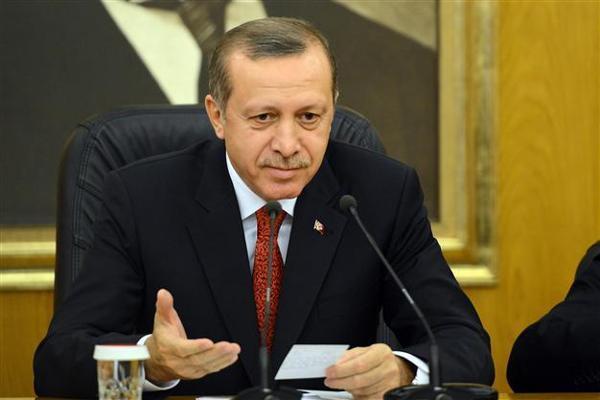Limit of lengthy detentions in Turkey to be reduced to five years: PM Erdoğan
ANKARA


Prime Minister Recep Tayyip Erdoğan speaks ahead of his departure for Berlin, Feb. 3. AA photo
The duration of lengthy detentions will be lowered to five years in a new bill, Prime Minister Recep Tayyip Erdoğan has announced.“The duration of detentions was previously reduced to 7.5 years from 10 years. With the new efforts we undertook yesterday [Feb. 2], we are lowering it to five years. Hundreds of people will benefit from it after it passes at Parliament,” Erdoğan told reporters in Ankara on Feb. 3.
Turkey has long been criticized for its lengthy detention periods. The Constitutional Court recently ruled in favor of individual applications of jailed lawmakers, citing European Court of Human Rights decisions.
Speaking ahead of his departure for Berlin, he also dismissed an opinion poll published by daily Zaman that showed the voting intentions for the ruling Justice and Development Party (AKP) to be around 36 percent, describing it as “a survey conducted by the parallel organization.” As a response, he showed a different poll by the KONDA research organization, which gave the AKP 47.7 percent of intended votes.
“They believe they can form a will as they wish, but they won’t be able to do it. Turkey cannot be directed from the other end of the world,” Erdoğan said, in apparent comments referring to the U.S.-based Islamic scholar Fethullah Gülen.
The prime minister has repeatedly accused Gülen’s movement for orchestrating the graft probe in order to damage the government, denouncing a “parallel state” within the police and the judiciary.
Upon a journalist’s question about a recent intelligence report, Erdoğan also accused the organization of having even infiltrated the National Intelligence Agency (MİT). “How are the MİT’s reports procured? The MİT always works with the condition of confidentiality. So how can it be procured by you or someone else? This is a very dangerous course,” he said.
Erdoğan’s Berlin visit comes after he sought to reassure top EU officials in Brussels last month that the rule of law would be respected in a controversial judicial bill that raised concerns over the government’s intervention with the judiciary.
The controversial articles of the bill were subsequently frozen, but Erdoğan rejected suggestions that the proposal would be withdrawn, adding that it could be submitted to Parliament once again “if necessary.”
